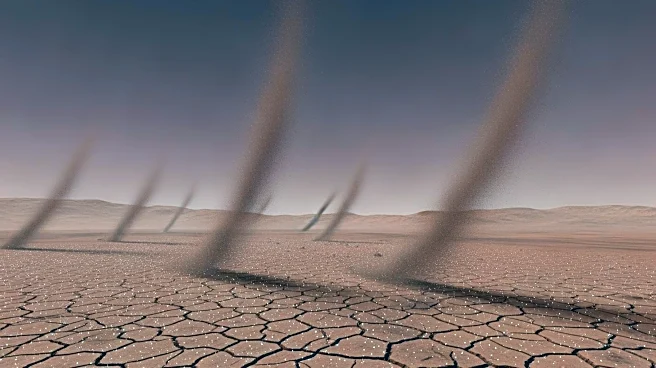Rapid Read • 7 min read
A recent study published in the journal Physical Review D suggests that dark matter can cause the disintegration of exoplanets by forming black holes within them. Researchers propose that superheavy non-annihilating dark matter particles accumulate in the cores of Jupiter-sized exoplanets, eventually collapsing to create black holes. These black holes then consume the planets from the inside. The study highlights that this phenomenon is not universal and only occurs in specific conditions involving unique dark matter particles. The findings could provide new insights into the nature of dark matter and propose a novel method of black hole formation.
AD
The study's implications are significant for understanding dark matter, a mysterious component of the universe that remains largely unexplained. By investigating exoplanets that have collapsed into black holes, scientists may gain crucial insights into dark matter's properties and behavior. This research could potentially lead to breakthroughs in cosmology and particle physics, offering a new perspective on the universe's missing matter. The ability to detect planet-sized black holes would also challenge existing theories about black hole formation, suggesting alternative processes beyond those occurring in the early universe.
Researchers aim to detect these planet-sized black holes by identifying free-floating objects in space with the mass of a planet but lacking light or heat. Upcoming missions, including the James Webb Space Telescope, may enhance the ability to observe such phenomena. Continued data collection and analysis of individual exoplanets will be crucial in advancing the understanding of dark matter and its interactions with celestial bodies.
AD
More Stories You Might Enjoy












